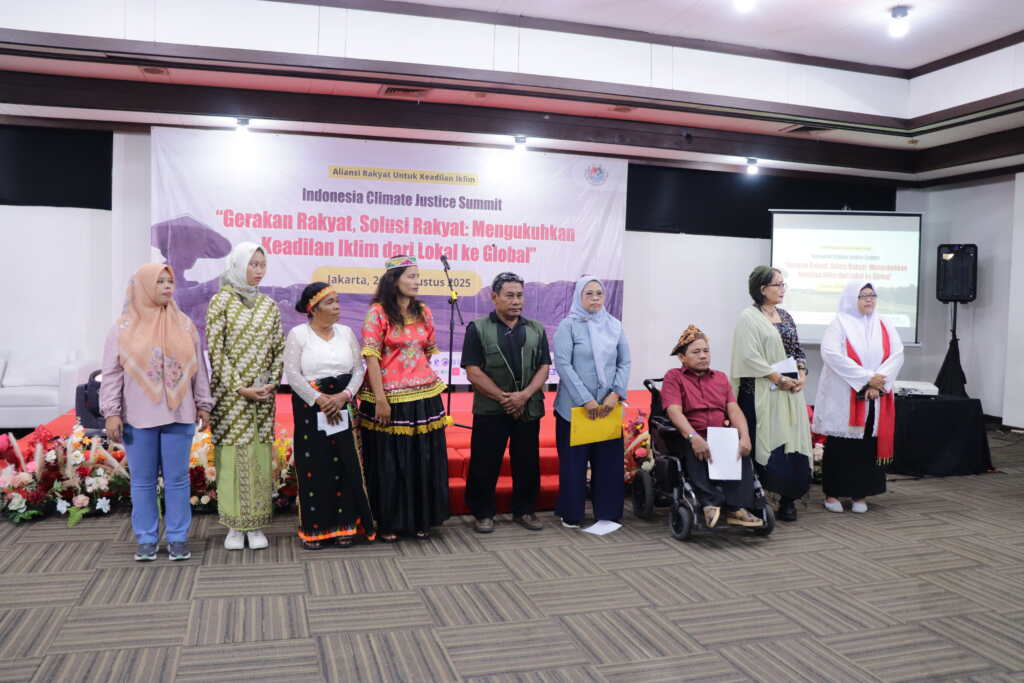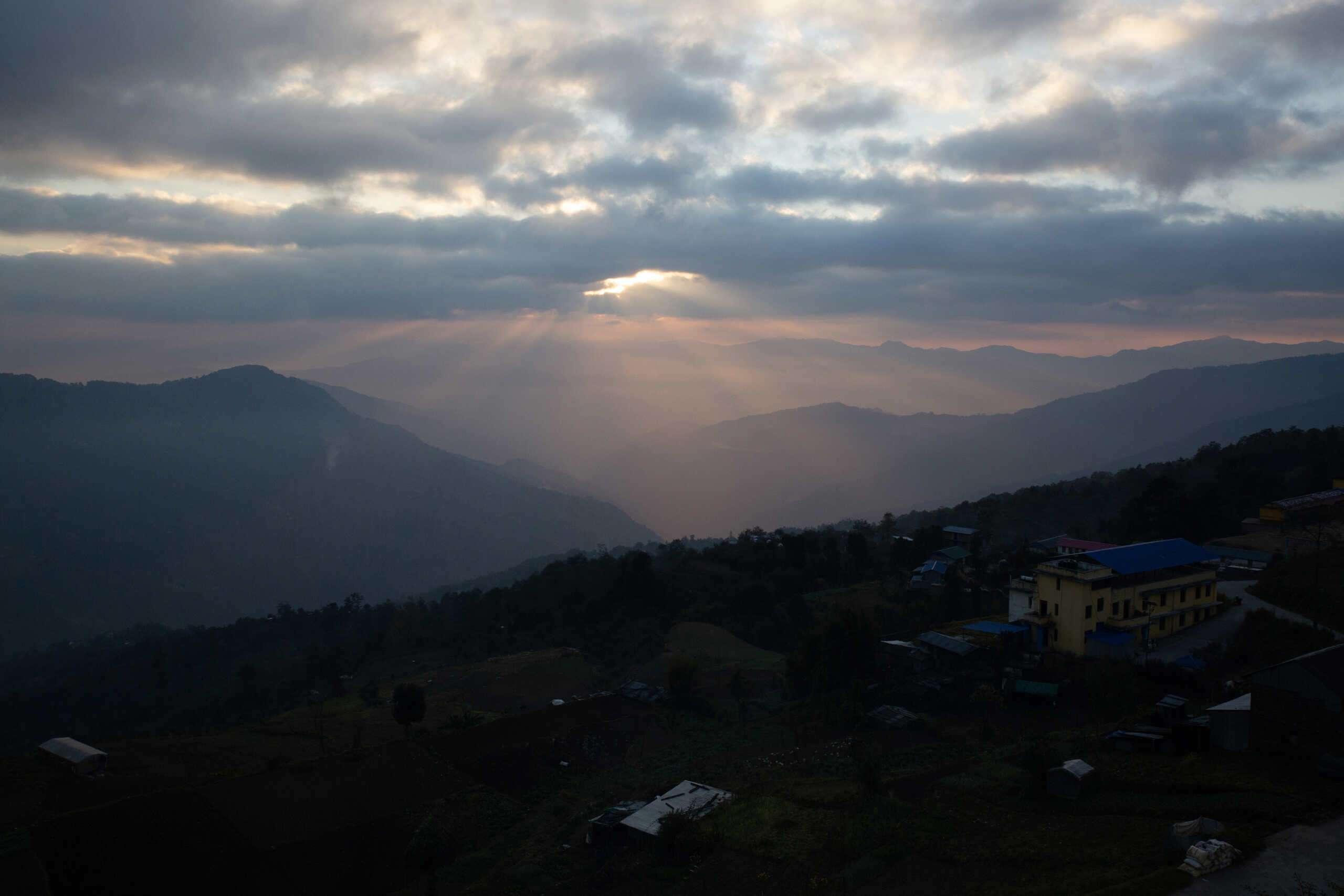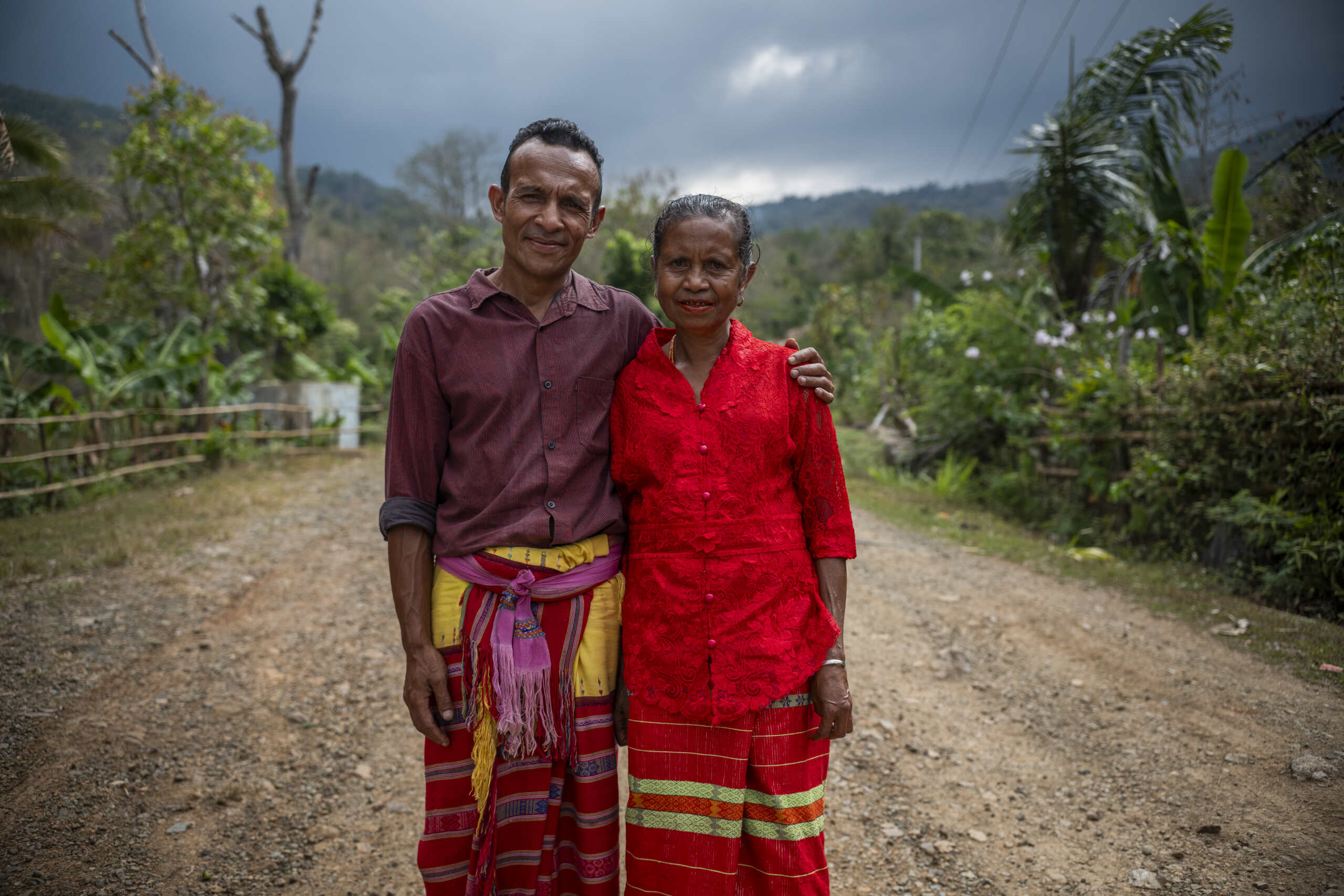Case study: Disability Coalition for Climate Justice – Advancing inclusion at Indonesia Climate Justice Summit 2025
Stories | October 20, 2025
In August 2025, the Disability Coalition for Climate Justice leveraged a small grant from CBM Global Disability Inclusion to achieve a significant milestone: ensuring the meaningful participation of people with disabilities at the Indonesia Climate Justice Summit (ICJS) 2025.

Held in Jakarta and convened by Aliansi Rakyat untuk Keadilan Iklim (ARUKI), ICJS brought together over 600 civil society representatives under the theme “People’s Movement, People’s Solutions: Measuring Climate Justice from Local to Global.”
The grant enabled Disability Coalition for Climate Justice to support 10 individuals with diverse disabilities from different provinces, particularly regions outside Java. This helped prepare Organisations of People with Disabilities (OPD’s), covering transportation, accommodation, meals and accessibility support. The funding ensured that diverse disability voices were present alongside farmers, fishers, Indigenous peoples, women, youth, and people living in poverty in urban areas.
Participants shared lived experiences of climate impacts, including inaccessible disaster response, displacement, and loss of livelihoods in agriculture and fisheries. Their participation strengthened solidarity between the disability rights movement and other social movements, and ensured that disability was recognised as a central justice issue in the national declaration and advocacy for the Climate Justice Bill (RUU Keadilan Iklim).
Pre-Climate Justice Summit Webinar
Preceding the Summit, Disability Coalition for Climate Justice hosted a national webinar, engaging 75 participants from 67 organisations. The webinar created an inclusive platform for dialogue. It highlighted how climate change exacerbates exclusion and risk for people with disabilities and underscored the urgency of placing disability at the centre of climate justice discourse.
The webinar also solidified new alliances between disability organisations, environmental groups, and human rights actors. These connections laid the groundwork for joint advocacy on adaptive social protection, accessibility, and participation in the Climate Justice Summit 2025 and beyond.
Focus Group Discussions
Following the pre-summit webinar, Disability Coalition for Climate Justice convened Focus Group Discussions gathering over 50 participants from multiple provinces and diverse organisations, to generate collective inputs for ICJS and COP30. These discussions produced concrete advocacy priorities, such as adaptive social protection, accessible disaster risk reduction, inclusive infrastructure, and recognition of disability in Indonesia’s climate strategies.
Disability rights at the climate justice summit
The small grant from CBM enabled Disability Coalition for Climate Justice to organise a disability-focused side event titled “Disability Rights = Climate Justice: Without Inclusion, There Is No Climate Justice”.
This was attended by 45 participants with diverse disabilities from various regions, ensuring the dialogue reflected lived experiences across geographies and identities, ranging from coastal communities in Sangihe facing declining fisheries due to pollution and climate change, to Indigenous women with disabilities in South Sulawesi addressing agricultural impacts and for people with psychosocial disabilities abandoned during floods.
Testimonies highlighted how climate change multiplies exclusion and risk, reinforcing the urgent need for adaptive social protection, inclusive disaster response, accessible information, and recognition of persons with disabilities as agents of resilience.
The event reframed disability from a vulnerability lens to a rights-based perspective, emphasising the agency and resilience of people with disabilities in climate action.
Post-summit
Following the summit, Disability Coalition for Climate Justice used the funding to convene a post summit reflection meeting with OPD representatives and CBM. This meeting provided an opportunity to assess impact of the summit and plan next steps. Key outcomes included commitments to capacity-strengthening, expanded networking, and sustained advocacy targeting the Climate Justice Bill, National Adaptation Plan, and COP30.
Transformation
The small grant’s impact was profound. It transformed Disability Coalition for Climate Justice from a coalition primarily focused on psychosocial disability rights into a recognised and credible leader in disability-inclusive climate justice. By bridging the disability and climate movements, Disability Coalition for Climate Justice positioned people with disabilities not as passive recipients of aid, but as active rights-holders and agents of change.
This case exemplifies how modest funding, when strategically deployed, can be truly transformative. It underscores the importance of inclusive climate advocacy and the need to embed disability perspectives in national and global climate policy. Disability Coalition for Climate Justice’s work at ICJS 2025 sets a precedent for future climate forums, affirming that without disability inclusion, there can be no climate justice.
https://www.cbm.org.au/stories/case-study-disability-coalition-for-climate-justice-advancing-inclusion-at-indonesia-climate-justice-summit-2025
Related Stories

Building inclusive, climate resilient communities in Bangladesh
Highlights from DFAT Post’s visit In January 2026, representatives from the Australian High Commission in...

Week 1 – Lent series 2026
As we enter the season of Lent, we’re taking time as a community to pause, reflect, and draw closer to the heart of God. Lent invites...

How CBM is making a difference in Indonesia
For more than 45 years, CBM Global has been working alongside communities in Indonesia to ensure people with disabilities...
